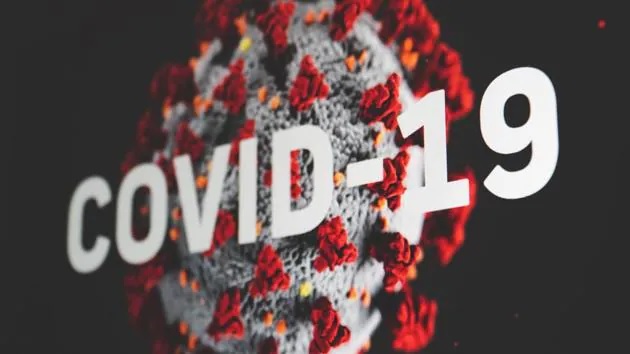
“I suppose the process of acceptance will pass through the usual four stages: 1. This is worthless nonsense, 2. This is an interesting, but perverse, point of view, 3. This is true, but quite unimportant, 4. I always said so”-J. B. S. Haldane.
Introduction
The debate over the hypothesis that SARS-CoV-2, the virus that causes the contagious Coronavirus Disease 19 (COVID 19) emerged from a laboratory in Wuhan, China, is escalating, with the world expressing concern over reports that the Chinese government and the Wuhan Institute of Virology (WIV) suppressed crucial public-health data, thereby leading to a global pandemic. Continuous attempts by the Chinese government to silence critics, hide vital scientific data, control markets, militarise diplomacy and leverage vaccine diplomacy to control the narrative is worrisome. The investigation carried out by the World Health Organisation (WHO) on the origins of the pandemic lacked both credibility and transparency, as a result of which the WHO has lost much of its sheen and reputation. Besides the fact that half of the investigating team was composed of Chinese members and that the team members were taken on a conducted tour and were not provided open access by the Chinese authorities indicates a lack of transparency and accountability, which has raised alarm across the world.
Both the natural origin and lab-leak hypothesis argue for a transparent and independent investigation for better preparing and scrutinising research and labs across the globe. This article aims to provide a holistic analysis of the outbreak of the pandemic and of Chinese attempts to control the narrative to avoid accountability.
COVID-19 & Impact on Health of Global Economy:
Trade imbalance and benefits to China
The pandemic has hugely disrupted the global markets and the virus still continues to plague the major economies. While the world suffered the trade deficit, China capitalised on the global demand during the pandemic to pull ahead on trade and managed record-setting levels of exports in 2020. World is importing more Chinese goods, and this trend will continue, as the industrial production is on recovery mode[1]. With global trade imbalances, China has emerged as the fulcrum of the global supply chain, with 2020 being the bumper year for China’s export boom with unmatched export momentum[2]. With a resilient, stable domestic growth, Chinese manufacturers quickly built production lines to produce both pandemic and non-pandemic related goods to meet the demands in the new Covid-era. The economic figures shows that China has outperformed the world’s best-performing major economies with growing influence and control on big markets including the US, European Union and Southeast Asian nations.[3] What does this tell us about China’s prompt COVID-19-related offensive economic policy?
New Geopolitical alignments for Vaccine, Drugs and Health Diplomacy and failure of WHO
During the pandemic, China sought to fulfil its ambition of global health leadership through international health politics and diplomacy. The Health Silkroad is the new reality as China has become for many countries, not just the largest exporter, but also the only option. The geopolitical clout of China is increasing as the world is becoming more reliant on China for vaccines when the US, EU and India are domestically confronting and recovering from the pandemic. Despite concerns about the effectiveness of China’s Sinovac Biotech Ltd. and Sinopharm Group Co. Ltd., the WHO has authorised and allowed developing countries in Asia, Africa and Latin America to access the Chinese vaccines through Covax (the global vaccination effort). China has already shipped out over 240 million doses, more than all other nations combined, and has committed to provide another 500 million doses, according to Airfinity Ltd..[4]
The public-health impact of WHO approval and boost to less efficacious Chinese vaccines than Pfizer and Moderna for the WHO-backed Covax effort is worrisome. “The WHO approval of Chinese vaccines will, in the medium term, help to strengthen Chinese power and authority within the region,” said Nicholas Thomas, faculty at the City University of Hong Kong and expert in global health and foreign policy. China tried to exploit India’s crisis by providing vaccines to South Asian countries that had been aligned to India for the vaccines. By sharing Sinopharm shots with Bangladesh, an agreement to enhance military cooperation was secured. With India’s export delay, Philippines and Indonesia became dependent on vaccine supplies from China. What does this indicate us about the China’s COVID-19-related offensive health diplomatic policy and WHO’s Sino-defensive protectionist policy?
The Evolving Nature of China’s Military Diplomacy: establishment of new strategic relations and improving global reputation through civilian aid diplomacy
During global pandemic, the People’s Liberation Army’s (PLA) engagement in military-to-military cooperation through civilian aid diplomacy explains PLA’s role in extending China’s national security cooperation and diplomatic efforts, as per Xi’s announcements in 2015. The evolving and growing role of PLA in national diplomacy and security strategy to serve strategic and operational goals explains the heights of a more nationalist and assertive Chinese foreign policy. Chinese military’s place in China’s COVID-19-related foreign policy expanded diplomatic efforts to improve China’s global reputation regarding the initial cover-ups, delayed and mishandled response at the start of outbreak in 2020. The COVID-19 related military diplomacy started surprisingly and appreciably quiet promptly in March 2020, when the PLA sent protective equipment and clothing to Iran. Donating vaccines to overseas militaries in the countries in the Asia-Pacific and Africa fits under global and wider vaccine-centric effort by Chinese government to establish new strategic relations and establish influence geographically. What does this tell us about prompt and aggressive-nationalist Chinese military’s engagement in China’s COVID-19-related foreign policy?
China & offensive Biotechnology for dominance and control of global healthcare’s future
China’s 2025 national strategy includes plans to be the dominant leader in the biological age. Under Beijing’s civil-military fusion strategy, the PLA is sponsoring research on biology on future warfare, brain control weapons, specific ethnic genetic attacks, biological and biomimetic materials and human performance enhancement technologies etc. In 2016, the Chinese government launched China’s National GeneBank DataBase (CNGBdb), which aims to become the world’s largest repository of genetic data. The US’s National Counterintelligence and Security Center released a fact sheet outlining the risks to privacy, economic and national security posed by China’s collection of genomic and healthcare data from the US[5].
China is documented for forced collection of genetic information from Uighurs in Xinjiang, state surveillance and now mass collection of DNA and personal health information of various countries via legal or illegal means.[6] From economic point of view, this collected data with the Chinese government provides a fuel to China’s artificial intelligence and precision medicine industries, putting China’s biotech industry at a cutting advantage. Targeting and manipulating individuals in foreign governments, private industries and surveillance for innovation and drug development to lead and control the global market is unethical. What does this tell us about the China’s COVID-19 related offensive biotechnology program for dominance and control of global health care’s future?
To be continued…
References:
[1] https://www.business-standard.com/article/international/china-2020-exports-up-despite-coronavirus-surplus-surges-to-535-billion-121011400285_1.html
[2] https://www.hindustantimes.com/world-news/china-ends-2020-with-record-trade-surplus-as-pandemic-goods-soar-101610606537165.html
[3] https://fortune.com/2020/12/08/us-china-trade-dynamics-covid-19-pandemic/
[4] https://www.business-standard.com/article/current-affairs/the-world-turns-to-china-for-vaccines-as-covid-19-crisis-deepens-in-india-121050700097_1.html
https://merics.org/en/short-analysis/chinas-vaccine-diplomacy-assumes-geopolitical-importance
[5]https://www.dni.gov/files/NCSC/documents/SafeguardingOurFuture/NCSC_China_Genomics_Fact_Sheet_2021.pdf
[6] https://www.nytimes.com/2019/02/21/business/china-xinjiang-uighur-dna-thermo-fisher.html






Add comment